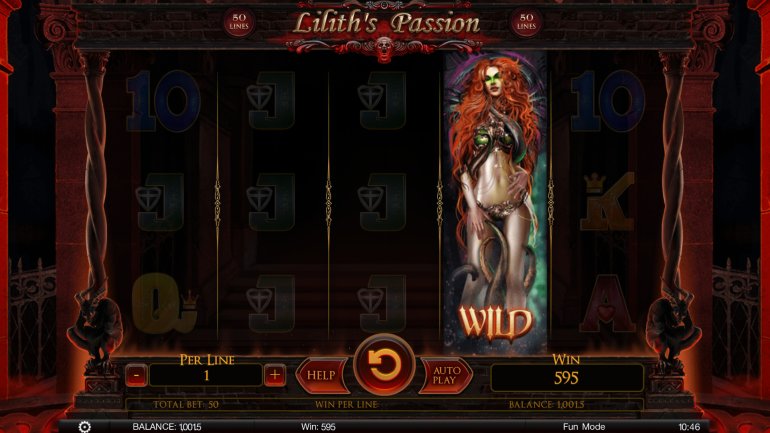
Many terms and concepts are important for every gambler to understand in online gambling. One of the key metrics to pay attention to when choosing slots is the return to player, or RTP.
RTP is a theoretical indicator expressed as a percentage. It shows how much of the total bets the slot returns as winnings in the long run.
For example, if the RTP of a slot is 96%, it means that, in theory, out of every $100 bet by players, $96 will be returned as payouts.
Understanding the nature of RTP is critical for several reasons:
- Assessing potential profitability: RTP shows how "generous" a slot can be in the long run.
- Comparing games: Knowing the RTP of different slots allows gamblers to choose those that offer more favorable conditions.
- Expectation Management: RTP helps create realistic gameplay expectations and possible winnings.
- Strategic Planning: Information about RTP can be used in strategy and bankroll management.
In this article on Casinoz, we examine the concept of return to player, its impact on gameplay in online slots, and how gamblers can use this information to make more informed decisions when playing.
What Is RTP in Slots?
Let's clear out this concept in detail.
Return to Player (RTP) is a crucial concept in online casino slots. It represents the percentage of all wagered money a slot machine will pay back to players over time.
Essentially, RTP measures a slot game's generosity and is a key indicator of its long-term performance.
It is essential to realize that this is a long-term and theoretical figure based on millions of spins. It does not guarantee a particular player a certain percentage of funds will be returned during a gaming session.
For example, if a slot's RTP is 96%, it should return 96% of all bets placed to players over a very long period of play. The remaining 4% represents the casino's theoretical advantage, or the house edge.
The formula for calculating RTP: RTP = (Total Payouts / Total Wagers) x 100%.
Game developers determine the RTP using complex mathematical models, algorithms, and millions of gaming session simulations. Independent auditing companies then verify the resulting value to confirm the claimed figure.
It is important to note that RTP does not reflect the frequency or size of individual wins. It merely shows the overall trend of returns to players over the long term.
Understanding RTP helps players evaluate the potential profitability of different slots and make more informed choices when playing. However, due to short-term volatility and the element of randomness inherent in gambling, the actual results of individual gaming sessions may differ significantly from the theoretical RTP.
Typical RTP Ranges
Understanding the typical RTP ranges for online slots helps players gauge what constitutes a good return rate. Let's explore the average RTPs and compare them with land-based casinos.
Average RTP for online slots:
- Online slots generally offer RTPs ranging from 92% to 97%.
- Many popular online slots fall in the 95% to 96% range.
- Some high-RTP slots can reach 98% or even 99%, though these are less common.
- Slots with RTPs below 94% are generally considered low for online games.
RTP tiers for online slots:
- Low: Below 94%,
- Average: 94% to 97%,
- High: Above 97%.
Comparison with Land-Based Casinos
Online slots typically offer higher RTPs than their land-based counterparts.
Physical casino slots often have RTPs between 70% and 90%.
The lower overhead costs of online casinos allow them to offer more favorable odds.
Factors Influencing RTP Differences
Why do slots feature different returns to the player?
- Operating costs: Online casinos have lower expenses, allowing for higher RTPs.
- Competition: The online market is more competitive, pushing RTPs higher.
- Regulations: Some jurisdictions have minimum RTP requirements for online slots.
- Transparency: Online RTPs are often published, encouraging higher rates.
While online slots generally offer better RTPs, this doesn't guarantee better outcomes for individual players in the short term. The higher RTP becomes more significant over extended play periods.
Factors Affecting RTP
While the Return to Player (RTP) percentage is a fixed value for each slot game, several factors can influence how this plays out in practice. Understanding these factors can help players make more informed decisions about which slots to play.
- Game volatility: Volatility (or variance) refers to a slot's risk level and payout frequency. High volatility slots tend to have less frequent but larger payouts, while low volatility slots offer more frequent but smaller wins. Volatility can affect how a player experiences the RTP in shorter play sessions. High-volatility games may require longer play times to approach their stated RTP.
- Bonus features: Many slots include free spins, multipliers, or mini-games. These features often contribute significantly to a game's overall RTP. Some slots may have a lower base game RTP but compensate with high-value bonus rounds. Understanding how bonus features contribute to RTP can help in game selection.
- Betting strategies: Some slots have different RTPs for different bet sizes. Maximum bets may sometimes activate additional features or paylines, potentially increasing the effective RTP. Progressive jackpot slots often require maximum bets to be eligible for the jackpot, which can significantly impact the overall RTP.
- Game mechanics: Certain game mechanics, like cascading reels or expanding wilds, can influence how the RTP is experienced.
- Paytable structure: The distribution of payouts across different symbol combinations can affect how the RTP manifests in gameplay.
- Game provider: Different software providers may have varying approaches to RTP implementation.
While these factors can influence how RTP is experienced, they don't change the game's underlying mathematical RTP. Players should consider these elements alongside RTP when choosing slots to play.
Here are some high-volatile slots.
| Name | Soft | Return to player | Min bet | Max bet | Max payout | ||
|
|
95.58% | — | 1125 $ | x3000 $ | |||
|
|
95.58% | — | 1125 $ | x3000 $ | |||
|
|
93.9992% | — | 500 $ | x1000 $ | |||
|
|
96.51% | 0.2 $ | 100 $ | x10000 $ | |||
|
|
96% | 0.5 € | 75 € | x12497 € | |||
|
|
96% | 0.4 € | 100 € | x1000 € | |||
|
|
96% | 0.1 € | 20 € | x50000 € | |||
|
|
96% | 0.2 € | 100 € | x30000 € | |||
|
|
96.55% | 0.2 $ | 240 $ | x12500 $ | |||
|
|
96.18% | 0.1 € | 100 € | x11000 € |
How Can I Figure out a Slot's RTP?
There are two ways to calculate the RTP, but none works for slot machines at online casinos. The first method involves mathematical calculations. The most straightforward example is making bets on European Roulette.
- There are 37 numbers on the wheel.
- Eighteen are black.
- The odds of hitting a black number are 18:37.
It is simple.
However, using this approach in online slots is impossible because we do not have enough information for calculations. To do this, we need to know the number of symbols of each type that may land on the reels.
Even if we get all this data, the calculation will be too complex for an average user without special education. They must know many nuances, such as the number of pay lines, winning combinations, bonuses, etc.
Computer software simulators estimate the return to players of particular games in such complex cases. They are often used in video poker and blackjack. They simulate tens and hundreds of thousands of hands, and the program processes the results.
Despite this method's apparent advantages, applying it to online slots is difficult because of the vast and ever-increasing diversity.
We know only a dozen varieties of blackjack or video poker; new slots come out daily.
Consequently, if a third-party researcher has a goal to calculate the RTP of each slot, he won't be physically able to do it.

You can research the RTP of online slots using autoplay in a free mode. Such an opportunity is available at most online casinos. To do this, set the bets and start the autoplay at the maximum number of spins. You can calculate the return if you know the initial and final amount of the bankroll, the number of spins, and the bet.
But we should not delude ourselves about the accuracy of the result. Even a few thousand spins are not enough for such calculations. So, this practice will be better suited to practice on a selected slot but not choosing the best one in terms of payments.
Casinoz Reviews
For readers of our site, the easiest and most convenient way to determine the return of a slot is to open a game review on Casinoz and find out the RTP from the description. We add all relevant information about slot machines to our reviews.
Slots with high RTPs:
Here are some slot machines with impressive RTPs.
| Name | Return to player | Max payout | Variance | Soft | ||
| 99.07% | — | Low |
|
Play | ||
| 98.72% | — | — |
|
Play | ||
| 98.67% | — | — |
|
Play | ||
| 98.6% | — | — |
|
Play | ||
| 98.18% | — | Low |
|
|||
| 98.13% | x20 € | — |
|
Play | ||
| 98.12% | x500 $ | Low |
|
Play | ||
| 98.11% | x1500 $ | High |
|
Play | ||
| 98.11% | x7500 $ | — |
|
Play | ||
| 98.1% | x2500 $ | — |
|
Play | ||
| 98.1% | x2500 $ | — |
|
Play | ||
| 98.06% | x5000 $ | High |
|
Play | ||
| 98.03% | x15000 $ | Middle |
|
Play | ||
| 98.01% | x500 $ | — |
|
|||
| 98% | x2000 € | Middle |
|
Play |
Official Info on RTPs
Most software developers provide the RTP for their slots. You can trust them or not, but it's hardly possible that famous producers would risk their reputation.
Usually, gambling operators don't have a right to intervene in the rng operation. That means they can't affect the slot's return to the player.
You can find the RTP info in the following sources:
- Paytable of the slot machine;
- The help section of the slot;
- Producer's official website;
- Press release;
- Slots reviews on Casinoz.
Always check the RTP before you play for real money.
Independent Auditors' Reports
Some auditing organizations publish reports of real RTPs in the games of particular casinos or developers. Compare it to the RTP announced by the producers.
Casino Websites
Reputable online casinos often provide RTP information for their games.
Check the casino's game guide or slot section for this data.
Tips for Finding Accurate RTP Information
Here are several helpful tips for slot fans:
- Cross-reference data from multiple sources when possible.
- Be wary of third-party websites that may not update their information regularly.
- Contact customer support if you can't find RTP information for a specific game.
- Some games may have variable RTPs based on betting options or jurisdictions.
Players can make more informed choices about which slots to play by knowing where to find reliable RTP information.
RTP and Player Strategy
Here's how to use RTP information effectively and balance it with other game aspects.
Game selection:
- Choose slots with higher RTPs for potentially better long-term results.
- Consider RTP alongside other factors like volatility and personal preferences.
Bankroll management:
- Use RTP to estimate potential losses over time.
- Adjust your betting strategy based on the game's RTP and your budget.
Session planning:
- Higher RTP games may allow for longer play sessions with the same bankroll.
- Be aware that short-term results can still vary significantly from the RTP.
Bonus hunting:
- Look for casino bonuses on high RTP slots to maximize potential value.
- Check bonus terms and conditions, as some may exclude high RTP games.
Balancing RTP with Other Game Aspects
Entertainment value:
- Don't sacrifice enjoyment solely for a higher RTP.
- Find a balance between games you enjoy and those with favorable RTPs.
Volatility:
- Consider how volatility affects your playing experience and risk tolerance.
- High RTP and high volatility games might suit players with larger bankrolls.
Bonus features:
- Evaluate how bonus features contribute to the overall RTP and gameplay experience.
- Some players may prefer simpler games with higher base game RTPs.
Betting limits:
- Ensure the game's betting range aligns with your bankroll, even if the RTP is attractive.
Jackpots:
- Consider how much of the RTP is allocated to the jackpot for progressive jackpot games versus regular play.
Misconceptions about Slot RTP
Despite its importance, players often misunderstand RTP. Let's address some common myths and clarify the relationship between RTP and house edge.
Common myths:
- Myth: High RTP guarantees wins.
Reality: RTP is a long-term average and doesn't guarantee short-term results. You can still lose money on high RTP games.
- Myth: RTP changes during gameplay.
Reality: The RTP of a slot is fixed and doesn't change based on recent results or player behavior.
- Myth: Casinos can adjust RTP at will.
Reality: Reputable casinos use games with fixed RTPs set by developers. Changing RTP typically requires regulatory approval. Yet, some providers offer slots with several RTP levels, and casino operators can choose from them.
- Myth: RTP indicates how often a slot pays out.
Reality: RTP doesn't reflect payout frequency, which relates more to volatility.
- Myth: Lower RTP games are "due" for a big win.
Reality: Each spin is independent. Past results don't influence future outcomes. Though understanding RTP is valuable, it's just one aspect of responsible gambling. Always play within your means and for entertainment purposes.
You can play thousands of slots in these casinos.
| Casino | Bonuses | Editors rating | |||
| 100% to 1000 $ x35 | Play | ||||
| — | Play | ||||
| — | Play | ||||
| 125% to 80 $ x35 | Play | ||||
| 100% to 400 $ x50 | Play |
What Should You Remember about Slot RTP?
While RTP is a valuable tool for slot players, it's just one aspect of the gambling experience. Players should balance their understanding of RTP with other factors like game enjoyment, personal preferences, and responsible gambling practices.
By combining knowledge of RTP with a responsible approach to gambling, players can enhance their online slot experience, potentially extend their playtime, and make more informed choices about which games to play.
Remember, playing responsibly, within your means, and primarily for entertainment is the key to enjoying online slots. RTP is a useful guide, but it should never overshadow the importance of safe and enjoyable gameplay.






















































